-
Stakeholder analysis
>
For stakeholder analysis we use an interactive method that makes it possible to analyze in a fast and efficient manner the power relations between actors relevant to a given issue. Such an analysis is crucial to identify the socio-economic and political context of the decision-making process, and to prepare, later in the process, a dialogue with stakeholders.
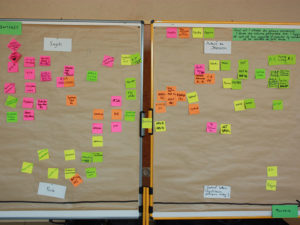
-
Participatory modelling
>
Participatory modelling is a method that allows a group of participants to develop together a model. This model corresponds to the representation that the group has of a situation, a problem or a system.
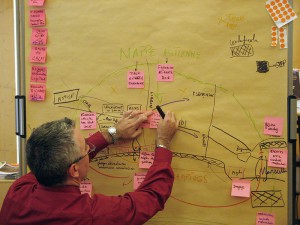
Depending on the issue treated, different types of models can be developed representing links between actors, natural resource dynamics, actors-resources dynamics, transformation process, etc.
The strength of this method is to bring participants together around a commonly constructed “boundary object”. This object (the model) can be then used as the basis for defining objectives, finding alternatives or articulating problems.
-
Role playing games
>
Role Playing Games (RPG) allow a group of actors to simulate an existing or a future problem and to explore its potential solutions. Participants are placed in a virtual decision-making situation in a controlled and safe environment. They can explore different scenarios, test solutions or experiment with new modes of interaction. During a reflection phase at the end of the process the participants have an opportunity to explain and analyze their choices in order to draw the appropriate conclusions.
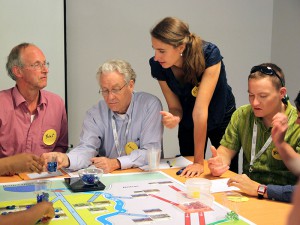
-
Group facilitation
Expand/Collapse
Group facilitation is the art and science of helping a group of people to reach their objectives in the best possible way. The role of the facilitator can be compared to a catalyst. He or she accompanies a group in reaching their objectives while strengthening the relationships within the group. A good facilitator takes into account the individual needs of group members, their relations and the common objectives that the group wants to follow. Good facilitation gives a new dimension to a group performance while preserving or increasing a well being of its members.
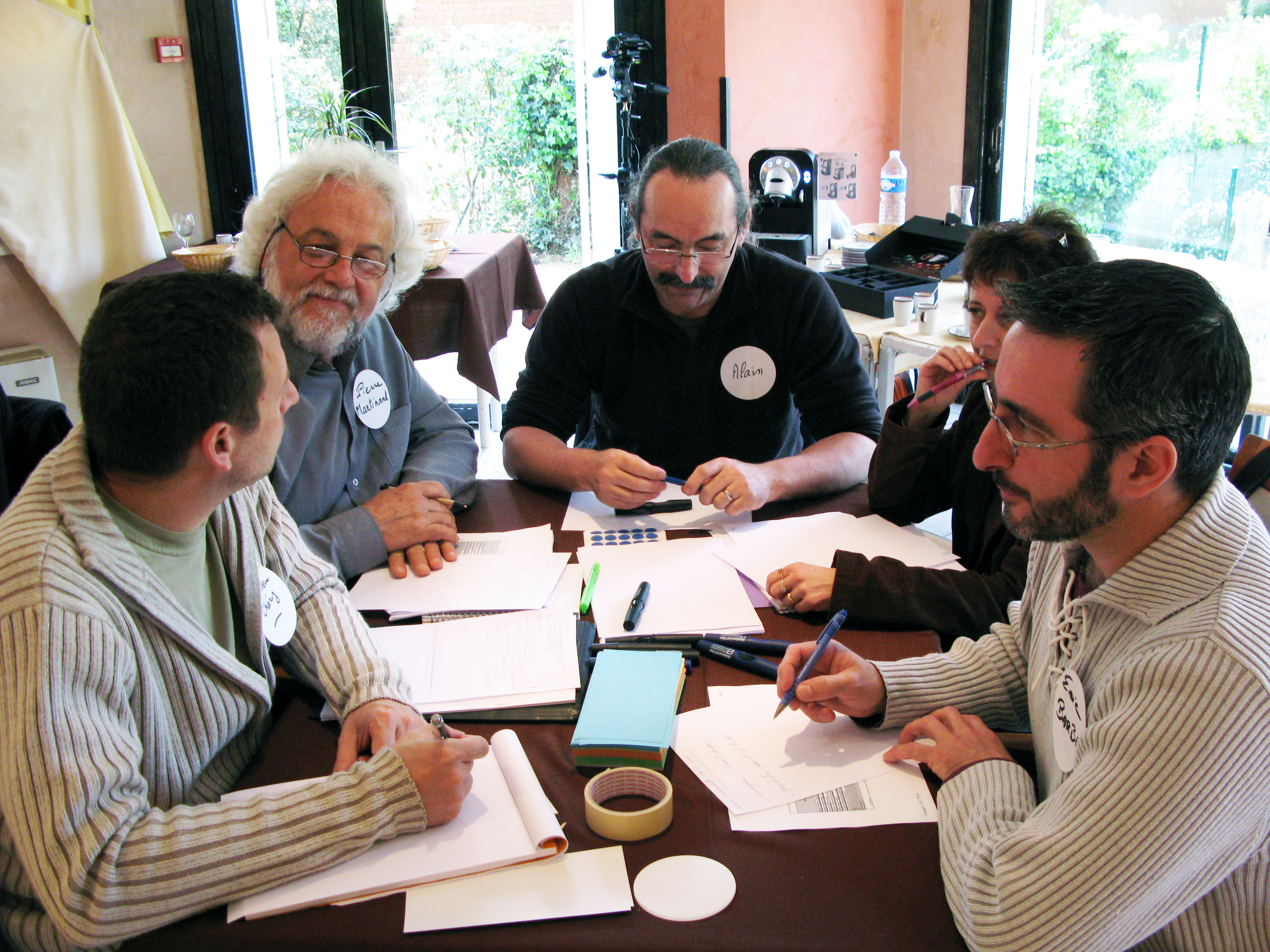
-
Process evaluation
>
It is essential to evaluate both the results of a participatory process and the process itself. We assess the quality of the process and its perception by the participants. This type of assessment allows the adaptation of the process along the way, but it also helps to refine the operational results of the project.
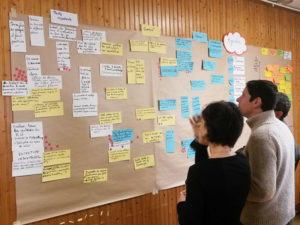
-
ComMod
>
The companion modelling approach (ComMod) was created in 1996 by researchers in the field of natural resource management and environment. Since then, this approach has been deployed in many areas in France and abroad, with varied objectives, from the understanding of territorial dynamics to the co-construction of management plans between different local actors.
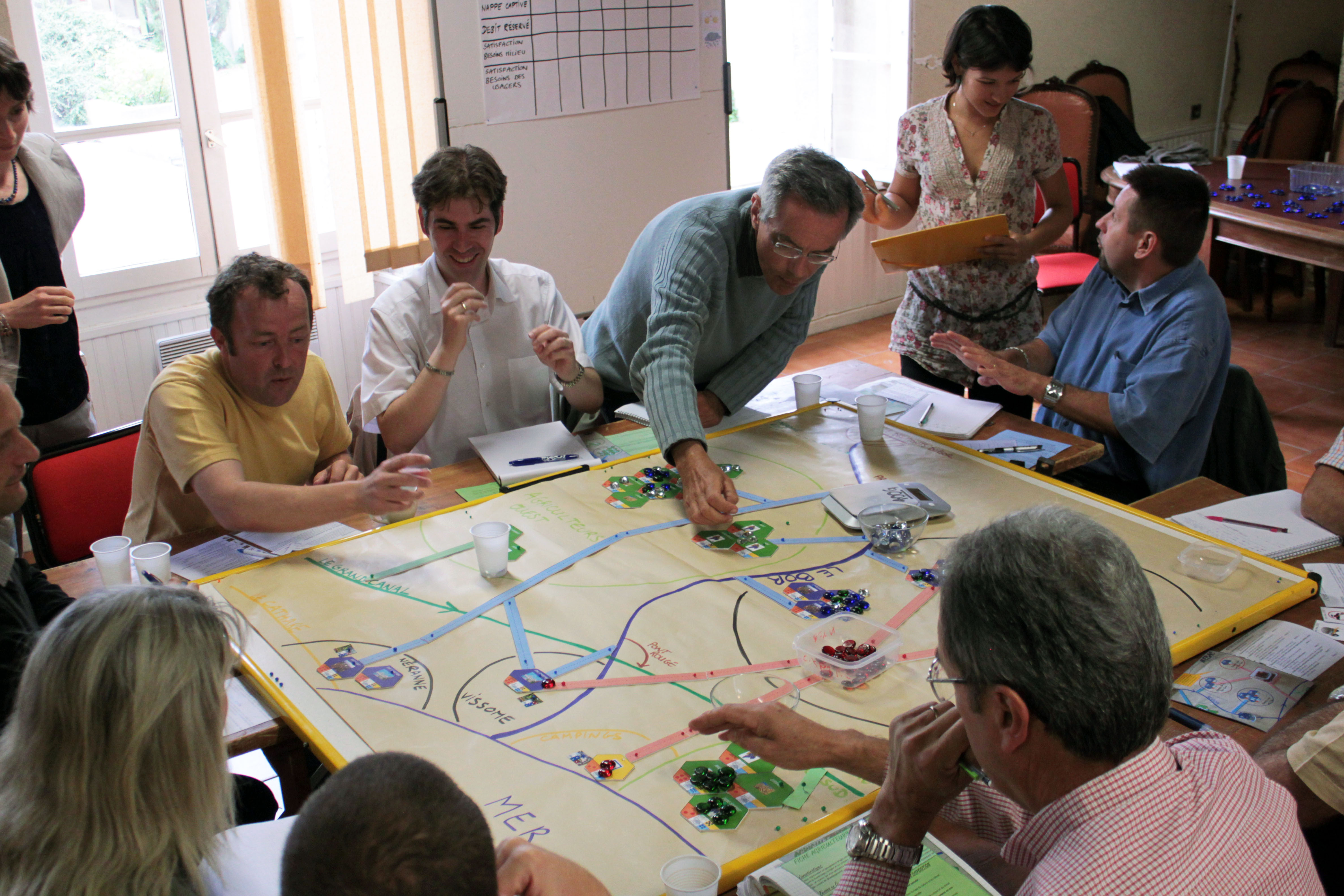
The specificity of ComMod is to mobilise participatory modelling and role playing games to simulate different scenarios of evolution of a territory or a resource with local actors. ComMod allows heterogeneous actors to share their views on an issue that concerns them, build a shared representation of the situation and seek solutions collectively. We use this approach to equip the process of territorial cooperation.
-
Agent-Based Modelling
>
Agent-based modelling of social systems is a modelling individual centred paradigm (or groups of individuals centred). It allows representing easily individuals, or groups of individuals according to their interests or behaviours, and their interactions with their environment. Its computer implementation, agent based systems, can simulate these eco-anthropo-systems with hypothesis related to individuals, or groups of individuals, more elaborated than classical economics’ hypothesis (so called of the homo œconomicus). Then it‘s a better representation of the complexity of these systems. We use ©CORMAS to make this implementation if required.
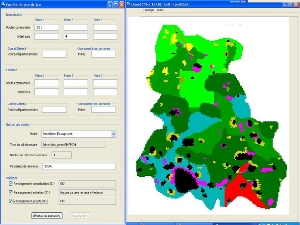
In combination with our participatory modelling approach, and in order to structure the role playing games we can produce for natural resources management, we can use agent based modelling approaches to describe stakeholders, their environment, and their dynamics and interactions. This approach allows us to represent in an intelligible and friendly way the complexity of eco-anthropo-systems and to bridge layman’s and users’ knowledge with scientific expertise. The agent based modelling also underpins the ComMod approach.